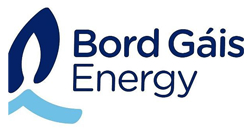Bord Gais Energy - Case Study

Bord Gais Energy is responsible for the supply of gas to both domestic and business customers throughout Ireland. Since 2009 it has offered customers a dual-fuel, gas and electricity, option. Its retail activities are backed by a trading team responsible for buying energy on the European wholesale markets. In addition, it operates a 445MW gas-fired power plant and twelve wind-farms. A subsidiary company, firmus energy, operates in Northern Ireland supplying gas and electricity in ten towns. Bord Gais Energy has around 500 staff, primarily based in Dublin (head office) and Cork.
To comply with the EU ‘Third Directive’, passed in September 2009, Bord Gais was required to formally separate its energy supply and transmission network activities. As a part of this, independent operational management structures and business functions had to be established for the two parts of the organisation. The approach adopted for IT services was for Bord Gais Energy to procure a managed service for data centre hosting and operations, service desk, deskside support and local office IT services, whilst leaving Bord Gais Networks with the current in-house IT services. This separation and independent service provision was required to be in place and fully operational by the end of March 2012.
Quantum Plus was engaged to perform a review and quality assurance role for the procurement process, which was conducted under EU public procurement regulations. This included the review of tender documents prior to their issue to interested suppliers and then participation in the evaluation of responses to the ITT. In addition we analysed the pricing proposed in the responses and compared this against our benchmark data to assess the ‘value for money’ of the different components of each bid. As the list of potential service providers reduced, a Quantum Plus consultant joined a small project team to select the preferred supplier through a series of workshops, site visits and formal presentations. Following selection of the preferred supplier, we performed a coordinating role in drafting, and then negotiating agreement on twenty four contract schedules.
The contract for the new managed service was agreed and signed at the end of October 2011, allowing a phased migration of the data centre hardware to the new service provider’s facilities to be completed by the end of 2011 and the other in-scope services to be fully transitioned by the end of February 2012. The cost for the new service was below the budget figure set at the start of the project; this will be augmented by a continuous improvement programme.



